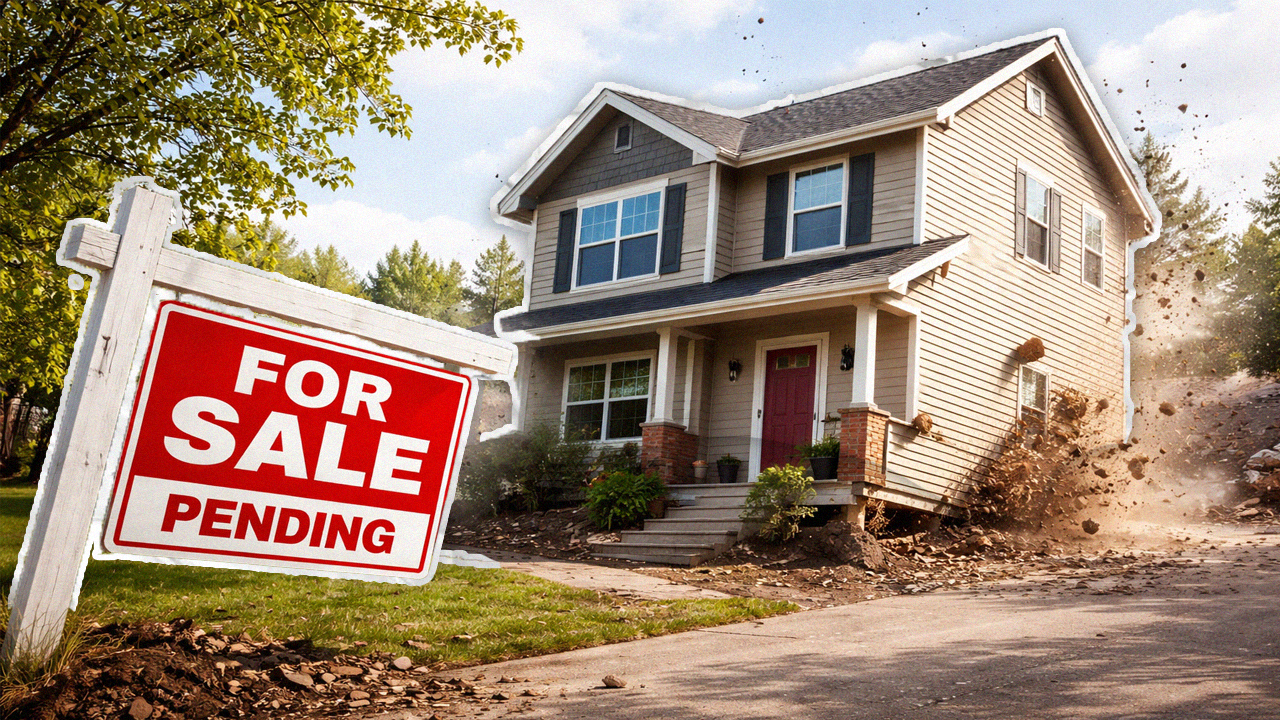Real Estate Market 2024: St. Louis Second-Home Market Shrinks
Sep 26, 2024
Photo by Pavel Danilyuk:
Written by David Dodge
Understanding the Dynamics of the Second-Home Market
The second-home market in St. Louis has faced a noticeable slowdown over the past year, primarily driven by rising interest rates and shifting buyer preferences. Andy Medici, in the St. Louis Business Journal, points out that more buyers are becoming wary of the financial strain that vacation properties can impose, particularly in regions like Florida and California, where rising insurance costs due to natural disasters add to the burden. For more details, you can read the full article here.
Data from Redfin Corp. and Optimal Blue LLC reveals that mortgage-rate locks for second homes—often vacation or investment properties—dropped by 13% in August, more than double the decline seen in primary homes. This marks the lowest level of rate locks for second homes since March 2016. Even more striking, the rate-lock activity for second homes is down 59.2% from pre-pandemic levels, compared to a 31.9% drop for primary homes. This illustrates just how sensitive the second-home market is to broader economic shifts like rising interest rates.
Cash Buyers and Shifting Investment Strategies
One factor contributing to the decline is the rise of cash buyers, who are sidestepping high mortgage rates. However, many prospective buyers are pulling back, viewing second homes as less attractive investments, especially as home prices continue to rise.
In seasonal towns, where second homes are more prevalent, the average home price reached $589,162 in August—a 4.1% increase from the previous year. In non-seasonal towns, prices were slightly lower at $437,787, yet these areas saw a higher year-over-year growth of 4.7%. This increase in home prices, combined with stagnant rental rates, makes it harder for second-home buyers to offset costs through vacation rentals.
Shay Stein, a Redfin Premier agent, noted that many second homes, particularly those priced between $400,000 and $800,000, are sitting on the market longer, contributing to the overall cooling of demand in this segment.
Rising Costs and Changing Priorities
Rising costs and economic conditions are further dampening interest in second homes. Nate Johnson, a real estate investment expert at NeighborWho, cites factors like higher mortgage rates, added fees from the Federal Reserve Housing Finance Agency, and the decline in remote work as major reasons why vacation homes are becoming less appealing.
Additionally, surging insurance costs, especially in high-risk states like Florida and California, are making second-home ownership more of a financial burden. As Johnson puts it, "Having a vacation property may become more of a financial burden than a privilege."
In light of these conditions, many buyers are reevaluating the value of owning a second home. Some are pivoting toward alternative strategies, such as short-term rentals or fractional ownership, while others are exploring emerging markets. Greg Clement, CEO of Realeflow, highlighted that while the market is slowing, it's also evolving, opening up new opportunities for strategic investors.
Economic Uncertainty and Buyer Hesitation
Broader economic uncertainty is also playing a role in the market's downturn. Investor-focused real estate broker Robert Washington believes that the current slowdown is not solely driven by rising insurance costs, but by a broader economic softening. Some buyers are waiting for mortgage rates to decrease, while others are holding off to see how the upcoming 2024 presidential election might impact the economy.
Seamus Nally, CEO of TurboTenant, notes that while the pandemic sparked a surge in interest for second homes as investments, many now lack the time or resources to continue pursuing these opportunities as the pandemic wanes.
Homeownership Costs Continue to Rise
Although the housing market has cooled slightly since the height of the pandemic, home prices are still climbing, outpacing wage growth in many U.S. cities. A Zoocasa analysis found that average monthly mortgage payments have increased faster than median incomes in 50 cities between 2018 and 2023.
While the Federal Reserve reported that the median U.S. home sales price fell to $412,300 in the second quarter, down from $418,500 in the previous quarter, prices remain high. Many Americans are increasingly skeptical of their ability to afford a home. In a recent survey by NewHomesMate, 57% of respondents expressed doubts about ever being able to purchase their “dream” home, and 58% said they would consider downsizing to achieve homeownership.
As interest rates and home prices continue to rise, second-home buyers are taking a step back, reconsidering the financial viability of such investments.
In summary, the current landscape of the second-home market in St. Louis reflects a complex interplay of economic factors, rising costs, and evolving buyer behaviors. As potential buyers become more cautious and the financial implications of owning a vacation property loom larger, the market is likely to continue its downward trend. Buyers are adapting by exploring alternative investment strategies and reassessing their priorities in light of economic uncertainties. For those still interested in the second-home market, staying informed and flexible will be essential in navigating these challenging conditions. As we move through 2024, understanding these dynamics will be crucial for anyone looking to invest in real estate in this shifting environment.






